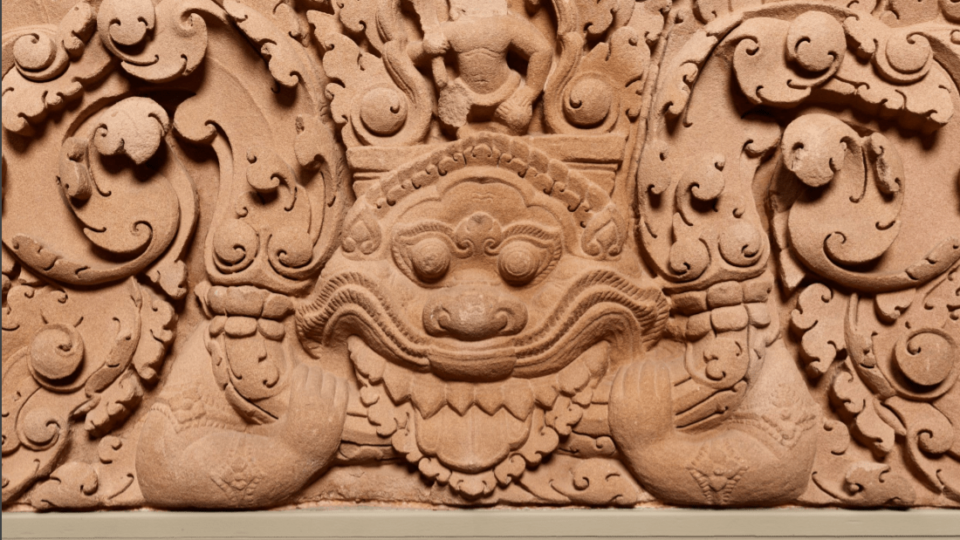Two massive Khmer carvings will be returned to Thailand from a California museum over 50 years after they were allegedly looted from the kingdom, the U.S. Justice Department announced today.
The return of the carvings, large architectural lintels weighing 680 kilograms each, was negotiated after the U.S. federal government filed a complaint against the city and county of San Francisco, where they were kept at its Asian Art Museum, according to David L. Anderson, a federal attorney in Northern California.
“The theft and trafficking of cultural artifacts is a tradition as old as the cultures they represent,” said Tatum King of Homeland Security Investigations, which has been investigating artifacts looted from abroad. “Through our work in this investigation in partnership with the U.S. Attorney’s Office in the Northern District of California, we have diligently sought to ensure the relationship between the United States and Thailand remains one of mutual respect and admiration.”
Under the agreement, the Thai lintels will be returned by March, barring pandemic delays, where they will be publicly exhibited.
Both lintels are hand-carved decorative relics that originally adorned ancient temples built by the Khmer empire in what is now territorial Thailand. One was traced back to Prasat Nong Hong, a temple in Buriram province that dates back to between the 10th and 13th centuries. The other came from Sa Kaeo province’s Prasat Khao Lon. They are prime examples of decorative lintels used in construction of the ornate stone temples which dot the region from Thailand to Vietnam.
Countless objects with cultural and historical significance were taken abroad which often ended up in museums or private collections. Thai and U.S. authorities have worked together over the years to return hundreds of antiquities. In 2018, the Thai Fine Arts Department said it had notified the U.S. Department of Homeland Security that the lintels belonged to Thailand, at which point the repatriation process began.
They were believed to have been illegally removed from Thailand over 50 years ago and later donated to San Francisco, which put them on display at its Asian Art Museum.
The forfeiture comes after a three-year Homeland Security investigation and is meant as a goodwill gesture, King said.




